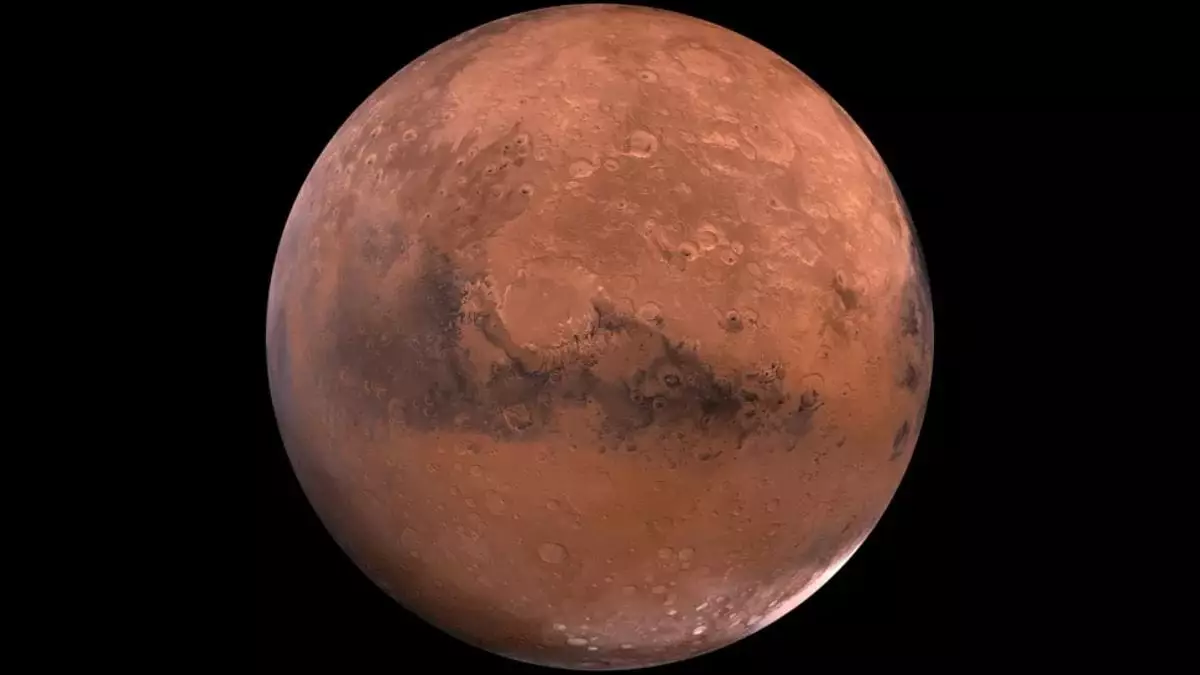Mars has long been the unsung hero of interplanetary exploration, often overshadowed by the lush imagery of Earth. Recent revelations about the Red Planet, however, paint an astonishing picture that radically transforms our understanding of its geological history. For years, the prevalent narrative suggested that Mars was a frigid wasteland, devoid of substantial liquid water and alternative life forms. Yet, a potential shift is underway thanks to NASA’s Perseverance rover, which is currently traversing the rugged terrain of Jezero Crater where researchers assert a mighty river once flowed. This newfound perspective aligns with the revelations from the Journal of Geophysical Research: Planets, where scientists unearth compelling evidence of a rich, warm, and hydrous planet that once shared striking parallels with Earth.
This transformative research challenges a long-standing ideology that tethered early Mars to an unforgiving ice-covered existence. According to scientists from the University of Colorado, our planetary neighbor might have enjoyed temperate conditions replete with regular precipitation—an idea almost too tantalizing to grasp in light of the current sterile landscape. However, this enticing hypothesis raises pressing questions: where did all that water go? The mystery deepens as they confront the specter of Mars’ current chilling temperatures that make liquid water seem like a fanciful dream rather than a factual reality.
The Simulation Saga: Peeling Back the Layers of Mars’ Climate
The quest to reconstruct Mars’ climatic conditions hinges on the implications of complex modeling systems. These simulations, initially devised for Earth, undergo a creative reinterpretation to visualize how ancient Martian landscapes transformed. Amanda Steckel, a dedicated postdoctoral researcher who contributed significantly to this enlightening study, underscores the challenges inherent in drawing definitive conclusions. Yet, the sheer variety of elevations from which valleys emerge indicates a geological narrative far more intricate than mere melting ice.
One can’t help but admire the audacity behind these simulations, which posit that the Noachian epoch—approximately 4 billion years ago—may have been a fertile cradle for flowing water and, by extension, a prime candidate for hosting life. The academic dive into these alternative climate models—”ice-melt” versus “wet and warm”—not only illustrates the duality of Martian conditions, but also forces us to reevaluate our own definitions of habitability and what it means for a planet to evolve. While the ice-melt theory hints at fleeting moments of warmth, the wet and warm model envisions environments reminiscent of Earth’s primeval era, giving even the most skeptical among us reason to think twice about the cultural images we’re fed regarding Mars as simply a barren wasteland.
Unexpected Insights For Earth’s Past: A Reflection on Cosmic Connections
The findings coming out of this Mars exploration project have far-reaching implications that extend beyond the dusty surface of our neighboring planet. These earth-shattering revelations compel us to reconsider the formation of our own planet and the climatic shifts that may have shaped it. As researchers scrutinize the geological features etched into Mars’ crust, they provide a mirror reflecting the turbulent history of Earth’s own water bodies and atmospheric changes. If Mars was once a world of flowing rivers and lakes, how might this inform our understanding of Earth’s own evolution?
The parallels are striking. The conditions that sustained a water-rich Mars could suggest that similar stages may have transpired on Earth, inscribing uniquely complex narratives into our geological record. This raises vital questions about the interconnectedness of planetary histories and how we understand the evolution—and potentially the future—of life across the cosmos.
While the questions surrounding Mars remain tantalizingly open-ended, one cannot help but view these findings with a mixture of hope and skepticism. The implications are profound and provoke invigorating debates about our place in the universe. As scientists continue to sift through layers of Martian history, they highlight the uneasy balance between what we know and what we dare to imagine.



Leave a Reply